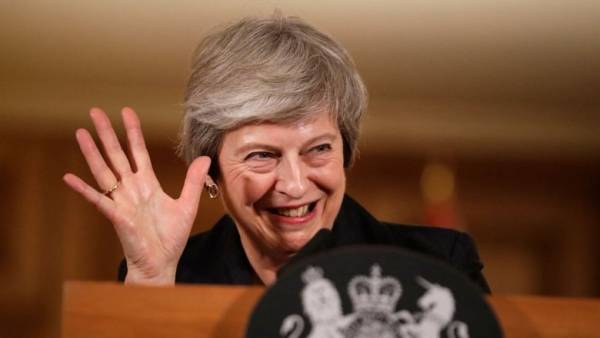The British Parliament rejected a Treaty on “breccia”. Theresa may on the verge of retirement
The British house of Commons has launched major political upheaval, the vast majority of votes rejecting agreed by the British government and the European Union the draft Treaty on the withdrawal of Britain from the EU. The opposition initiated a vote of no confidence in the government.

This can lead to the resignation of the government, early elections, the postponement of “breccia” and even a repeated referendum on Britain’s membership in the European Union.
Against the Treaty voted 432 MP, he — 202 deputies, and the defeat of the government with such a gap — 230 votes — was still never in the history of the British Parliament.
“This is a catastrophic defeat for the government”, — said the leader of the opposition labour party’s Jeremy Corbyn and announced that officially makes a proposal of a vote of no confidence in the government.
Theresa may for a moment before declared that if the opposition initiates a vote of no confidence in the government, her office is ready to discuss and vote tomorrow.
If the vote is passed, the conservatives will have over two weeks to try to form a new majority government, and if they did not succeed, to declare extraordinary elections. The ratings of the conservatives and labour now are approximately equal and vary in the range of 36-41%.
In addition to early elections, there are other possible scenarios, and most of these variants leads to the postponement of the formal withdrawal of Britain from the EU, which as of now is to be held on March 29.
However, it is possible and extreme, while theoretical versions of “landslide” exit without normalization or cancel “breccia”.
Any of the options will be of great value not only to the British economy and politics, but for the whole of Europe.
The majority in the house of Commons voted against the Treaty on the output, agreed upon by the British government and Brussels, but different group MPs did it for entirely different reasons. Therefore, none of the possible alternative variants of behavior in relation to the EU at the moment is not gaining the parliamentary majority, which makes the growing crisis especially severe and unpredictable.
“Today’s vote showed us, opposed by the chamber, but tells us nothing about what it stands for […] how it is going and even going there at all to respect the people’s decision,” said Mei immediately after the Commons defeated her office.
Few other scenarios: